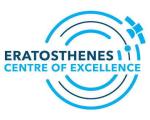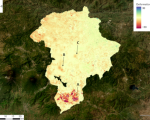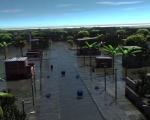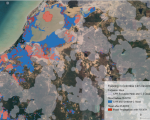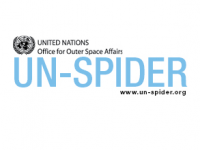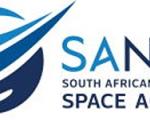ERATOSTHENES Centre of Excellence (CoE)
The ERATOSTHENES Centre of Excellence (https://eratosthenes.org.cy/) was established in 2020 through the EXCELSIOR H2020 Widespread Teaming project (https://excelsior2020.eu/) after upgrading the existing Remote Sensing and Geo-Environment Lab that operates at the Department of Civil Engineering and Geomatics of the Cyprus University of Technology since 2007. ERATOSTHENES Centre of Excellence (CoE) aspires to become a world-class Digital Innovation Hub and a reference Centre for Earth Observation, Space technology and Geospatial Information in the Eastern Mediterranean, Middle East, and North Africa (EMMENA) region.
The ERATOSTHENES CoE as a Digital Innovation Hub (DIH) adopts a two-axis model. The vertical axis consists of three Thematic Departments for sustained excellence in research of the ERATOSTHENES CoE, i.e., Environment & Climate, Resilient Society and Big Earth Data Analytics, whereas the horizontal axis consists of four functional areas, i.e., Infrastructure, Research, Education and Entrepreneurship. The DIH will create an ecosystem which combines state-of-the-art remote sensing, data management and processing technologies, cutting – edge research opportunities, targeted education services and promotion of entrepreneurship. In order to be dynamic and innovative, the Digital Innovation Hub will be based on two flagship infrastructures (https://eratosthenes.org.cy/functional-areas/infrastructure-functional-area/), a Satellite Ground Receiving Station and a Ground-based atmospheric remote sensing station.
ERATOSTHENES CoE hosts a multi-disciplinary team of highly skilled researchers and engineers with numerous publications in peer reviewed journals, nominations and awards, as well research projects funded from various European and National funding sources in different thematic areas, such as Environment & Climate (Atmosphere, Agriculture, Water, Land), Resilient Society (Disaster Risk Reduction, Cultural Heritage, Marine Safety & Security, Energy) and Big Earth Data Analytics (Information Extraction, Visual Exploration & Visualization, Crowdsourcing & Data Fusion, Geoinformatics.). The activities of the Disaster Risk Reduction Cluster of the ERATOSTHENES CoE, that are directly aligned to the goals of UN-SPIDER, involve the systematic monitoring of hazards, the development of Early Warning and Decision Support Systems dealing with earthquakes, landslides, coastal/soil erosions, forest fires, floods, drought and epidemics.
- Archived satellite data from various sources (Copernicus, MODIS, etc.)
- The Cyprus Data Cube (https://cyprusdatacube.com/)
For more information on the host institution, visit: https://eratosthenes.org.cy/
The ERATOSTHENES Centre of Excellence (CoE) engages with the complete ecosystem of stakeholders in a Multi-Actor approach, linking with players segmented according to their geographic location (from central Europe, to South-Eastern Europe, to EMMENA region), their position in the EO value chain (from EO data providers, to science laboratories and research institutes, to SMEs and large industries) and their mandate (from Public Sector, to sectorial coordination organizations, to economic development banks, etc.).
In this framework, ERATOSTHENES CoE provide capacity building for the professional development of public and private stakeholders in Cyprus and beyond with a focus on equipping and facilitating scientific and research personnel in the field of Earth Observation and Geoinformatics. The programme acts as a regional multiplier in the EMMENA, educating the new generation of scientists and motivating them to create new businesses, capitalizing on innovative research. In addition to the ERATOSTHENES CoE staff, governmental departments, private companies and end-users can benefit from the EO professional training schemes. Moreover, ERATOSTHENES CoE is a certified Vocational and Education Training (VET) Centre under the Cyprus Human Resource Development Authority (HRDA), capable to carry out subsidized, co-financed and/or advertised by HRDA training activities.
Last but not least, ERATOSTHENES CoE offers, in collaboration with the Cyprus University of Technology, a MSc degree in Geoinformatics and Earth Observation, and PhD students at Cyprus University of Technology have access to the ERATOSTHENES CoE facilities and infrastructure to conduct their research.
Address : Franklin Roosevelt 82, Limassol 3012, Cyprus
Telephone: +3525002908
Email: contact [at] eratosthenes.org.cy (contact[at]eratosthenes[dot]org[dot]cy)
Dr. Marios Tzouvaras - Research Coordinator | Disaster Risk Reduction Cluster Leader
Telephone: +357-25002006
Email Address: marios.tzouvaras [at] eratosthenes.org.cy
